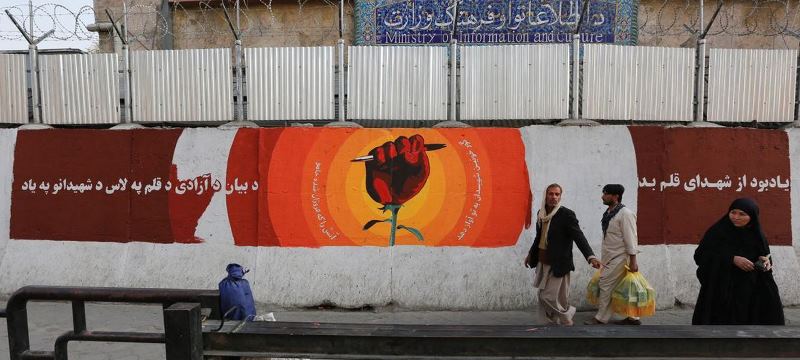A joint report by the United Nations Assistance Mission in Afghanistan (UNAMA) and the UN Human Rights Office (OHCHR) has brought to light alarming human rights violations faced by media professionals in Afghanistan between August 2021 and September 2024. The report, titled Media Freedom in Afghanistan, documents 336 incidents of human rights abuses against journalists, highlighting the challenges and risks media workers encounter in a climate of fear and increasing repression.

Arbitrary Arrests, Detentions, and Torture
The findings of the report reveal that journalists and media professionals have been subjected to a range of human rights violations. Among the 336 cases documented, 256 instances involved arbitrary arrest and detention, with an additional 130 cases of torture and ill-treatment. These violations create an environment of intimidation that stifles journalistic freedom and undermines the right to information.
The report shows the difficulties faced by journalists working under uncertain and restrictive rules, with many encountering arbitrary detention or threats for reporting on sensitive topics or offering criticism of the government or de facto authorities. These actions, according to the UN, have led to self-censorship within the media industry as journalists fear for their safety and freedom.
Threats and Intimidation
In addition to arrest and torture, the report highlights that threats and intimidation are prevalent across the country. A total of 75 cases of threats against media workers have been reported, exacerbating the already precarious environment for journalists. This ongoing climate of fear further silences independent reporting, preventing many from fulfilling their vital role in ensuring transparency and accountability within society.
Gender-Based Restrictions
The report also sheds light on the disproportionate challenges faced by female journalists and media workers in Afghanistan. Women working in the media sector face severe restrictions, including discriminatory regulations regarding dress codes and the types of stories they are allowed to cover. Many female journalists are either forced to stop working or limit their reporting due to these gender-specific barriers.
UN High Commissioner for Human Rights, Volker Türk, emphasized the critical role of journalists in society, stating that they are not mere observers but essential players in promoting transparency and accountability. He further stressed that media workers help communities access vital information on humanitarian and protection issues, which directly impact their lives.
During a daily media briefing at UN Headquarters, Deputy Spokesperson Farhan Haq highlighted the specific challenges faced by female journalists, noting that discriminatory measures severely limit their ability to perform their work effectively. These gender-based restrictions are a major concern, as they not only hinder freedom of expression but also contribute to the broader suppression of media freedom in Afghanistan.
Broader Consequences for Afghanistan's Media Sector
The report warns of the far-reaching consequences of the diminishing media freedom in Afghanistan. The increasing repression of the media sector not only harms journalists but also has broader implications for the country’s social, political, and economic development. A free press is essential for maintaining transparency, fostering informed public debate, and enabling accountability within both government and society.
The UN has also raised concerns about the declining international support for Afghanistan’s media industry. As the country’s media landscape shrinks, the space for independent reporting becomes more limited, threatening the free flow of information that is critical for the development and well-being of Afghan society.
Call for Compliance with International Human Rights Obligations
In light of these findings, the UN has called on Afghanistan’s de facto authorities to uphold the country’s obligations under the International Covenant on Civil and Political Rights, which guarantees the right to freedom of expression and freedom of the press without discrimination. The UN urges the authorities to respect these fundamental rights, allowing journalists and media workers to carry out their vital roles without fear of retaliation or persecution.
Comments (0)